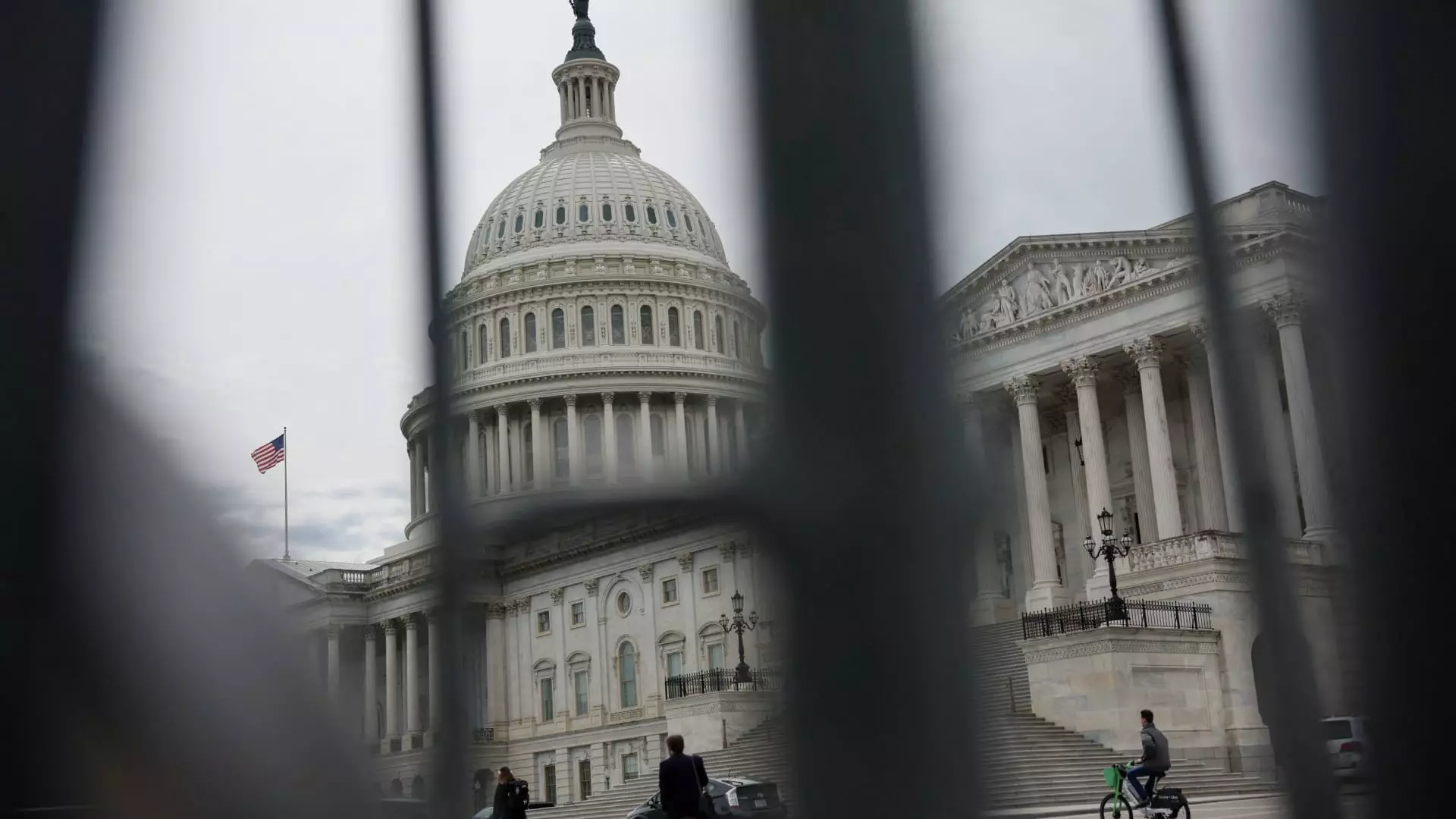In a bold and reckless move that epitomizes the current political climate, the U.S. Senate has approved a Republican budget blueprint that seeks to extend President Donald Trump’s 2017 tax cuts. This legislative maneuver is not just a routine political tactic; it’s a glaring affront to fiscal responsibility, with potential consequences that could echo through the fabric of American society for generations to come. By sidestepping the Senate filibuster, Republicans are paving the way to pass tax cuts without a single Democratic vote, triggering rising concerns about the future of our nation’s fiscal landscape.
According to various non-partisan analysts, the long-term implications of this budget plan are nothing short of catastrophic, with predictions that it may add approximately $5.7 trillion to the federal debt over the next decade. Such figures beg the question: How can lawmakers prioritize tax benefits primarily for the wealthy while disregarding the socio-economic ramifications for everyday Americans? The GOP claims a much more modest increase of $1.5 trillion, but their math seems more akin to political fiction than economic reality, refusing to acknowledge the full spectrum of consequences that come with these tax policies.
The Reality of Rising Debt
The budget plan’s aim to raise the debt ceiling by a staggering $5 trillion is particularly disconcerting, especially with the overarching risk of default looming over the $36.6 trillion national debt. The idea of extending tax cuts while simultaneously engaging in such high-risk fiscal strategies is emblematic of the reckless governance that we have come to expect. This budget strategy seems less about sustainable economics and more about creating a façade of prosperity for those who are already wealthy.
Republicans argue that allowing the existing tax cuts to expire would result in a 22% tax hike for the average American. This alarming statistic, cited by Senate Budget Committee Chairman Lindsey Graham, appears designed to instill fear among taxpayers rather than foster genuine understanding of the fiscal implications. The urgency in their tone suggests an underlying desperation to shield corporate profits at the cost of the public welfare.
Attacks on Essential Social Services
Equally troubling is the effect this plan could have on crucial government programs like Medicaid, which millions of low-income Americans rely upon for health care. The GOP’s determination to cut federal spending undermines the safety net that America has painstakingly built. The potential for $880 billion in cuts to Medicaid is not just a line in a budget proposal; it represents a direct assault on the health and well-being of our most vulnerable communities. As Senator Bernie Sanders has pointed out, such measures would inevitably worsen existing crises, stripping healthcare from millions of children and families who cannot fend for themselves.
The irony here is glaring: Republicans profess to advocate for fiscal conservativeness by claiming that they will seek efficiency within Medicaid without actual cuts. This narrative feels alarmingly hollow as it positions fiscal responsibility as a weapon against the needy. Instead of genuine reforms, the GOP appears ready to sacrifice essential services for the mere sake of scoring political points.
The Illusion of Efficiency and Prosperity
As we navigate through this chaotic political landscape, it’s crucial to address the underlying rationale of these sweeping reforms. The argument that tax cuts will stimulate economic growth is increasingly discredited—real-world outcomes often suggest that most benefits don’t trickle down but rather stay lodged in the pockets of the wealthy. The stock market’s recent turmoil underscores the peril of relying on ephemeral gains fueled by reckless trade policies; a reality that Senate Democrats have tried to emphasize, only to be mired in political obstruction.
The tension in the Senate debate was palpable, marked by vigorous exchanges; Republicans practically froze discussions on meaningful amendments, a move that shows a deep disregard for cooperation. Senator Rand Paul articulates the predicament faced by conservative deficit hawks, where potential savings must be weighed against the increased national debt. It seems that many Republican lawmakers are missing the crucial point: that fiscal conservatism is about prioritizing responsibly managed budgets, not short-lived tax cuts at the expense of social programs.
The Path Ahead: A Call for Accountability
As this contentious budget plan is handed off to the House, there lies an opportunity for vital deliberation and adjustments to ensure that American values—particularly those surrounding equity, accountability, and fiscal sanity—are upheld. The GOP’s plan represents an alarming trend where corporate interests are prioritized over the well-being of average citizens, and this pattern must not go unchecked. The ongoing battle for an economic framework that prioritizes health, education, and fairness must commence, as we find the courage to challenge policies that fuel inequality and sacrifice the future stability of our country.

